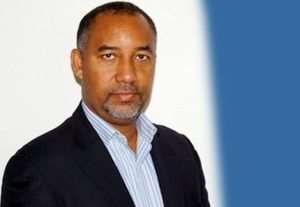
A former Executive Director of Standard Chartered Bank, CEO of National Petroleum Authority (NPA) and Ghana National Petroleum Corporation (GNPC), Mr. Alexander Mould has said that he is at a loss as to why the World Bank has remained quiet on the claims of cost inflation in the Sankofa Gye Nyame Project operated by Italian giant ENI who together with commodity giant VITOL invested in the project.
He said it was necessary that the World Bank cleared the air on the brouhaha surrounding the project as it was the world's largest guarantee the institution had given to any country.
Speaking to Francis Abban on Starr FM's Morning Star Show, Mr. Mould said “The world Bank invested $700 million which is the largest guarantee ever in the world on a project, ever. The largest guarantee the World Bank ever did in the world was to Ghana. And why? Because it was a good project.
A good project means:
1. In the economic sense, it gave a reasonable rate of return commensurate with the risk each stakeholder was taken ie All stakeholders will benefit
2. The country of Ghana was going to benefit immensely because gas was going to be produced in a sustained manner which will then be able to protect the government from the foreign exchange that it would otherwise have spent on importing fuel; People also don't realize that there is a large component of the gas price which accrues to government”
According to the former CEO of GNPC, when an institution of World Bank's repute backs such a project, it would want to ensure that it did not become a laughing stock in the future, and would make sure that when it goes back to its Board of Directors, for another guarantee, for another country, to do a similar project, they would approve.
This means it would make sure that the current project materializes to be a good project which means the development of the field to produce gas and the gas being paid for by entities who take it. The World Bank would therefore not back a project unless it was sure that all the players could do what is requirement of them.
Mr. Alex Mould therefore was quizzed as to why in the face of claims that the gas price of the project was too high, the World Bank had chosen to remain silent when the institution would not like to be associated with economies where an investor is perceived to be cheating a developing country. He said “The World Bank would never do that, and if they ever did that there would be egg on their face. And I am surprised that when I hear all these things about the gas price of this gas project, the World Bank remains quiet.
It baffles me as the World Bank should not be quiet. The World Bank should come to say why it invested its largest investment in the gas project in Ghana and why it was beneficial to the Government of Ghana, to the investors and to itself as the World Bank; it should be clear on its motives and decision criteria on why it went out of its way to support this project;
The World Bank benefitted a lot from this project in a win-win-situation because it scored a lot of points in the financial world that it had been able to do one of the first Gas-to-power projects in a developing country, and at a time that the power sector in the country was virtually bankrupt; there were question marks as to whether this gas to power project was going to deliver power in a country even though the power sector was bankrupt.
Doing this Gas to power project also accelerated the current reforms we are seeing in the power sector including the institution of ESLA in 2015 to address the ringfenced power sector debt and the institution of a gas revenue waterfall mechanism so all the players in the value chain would benefit and would bring back the necessary credit worthiness back in to the sector”
The former GNPC CEO said the World Bank invested in the Sankofa Gye Nyame gas project because the benefits and economics to both Ghana, the investors and their financial institutions, as well as the World Bank, was good.




 Whoever participated in the plunder of the state must be held accountable – Jane...
Whoever participated in the plunder of the state must be held accountable – Jane...
 A vote for John and Jane is a vote to pull Ghana from the precipice of destructi...
A vote for John and Jane is a vote to pull Ghana from the precipice of destructi...
 I’ll repay your abiding confidence with loyalty, understanding and a devotion to...
I’ll repay your abiding confidence with loyalty, understanding and a devotion to...
 ‘I’ve learnt deeply useful lessons for the future' — Serwaa Amihere breaks silen...
‘I’ve learnt deeply useful lessons for the future' — Serwaa Amihere breaks silen...
 I’m sorry for the embarrassment – Serwaa Amihere apologises for leaked sex video
I’m sorry for the embarrassment – Serwaa Amihere apologises for leaked sex video
 Dumsor: Matthew Opoku Prempeh not in charge of Energy sector – Minority
Dumsor: Matthew Opoku Prempeh not in charge of Energy sector – Minority
 Adu Boahen’s murder: Police arrest house help who was in possession of deceased’...
Adu Boahen’s murder: Police arrest house help who was in possession of deceased’...
 Akufo-Addo nominates Felicia Attipoe as Tema West MCE
Akufo-Addo nominates Felicia Attipoe as Tema West MCE
 Election 2024: I can't have someone I defeated twice as my successor – Akufo-Add...
Election 2024: I can't have someone I defeated twice as my successor – Akufo-Add...
